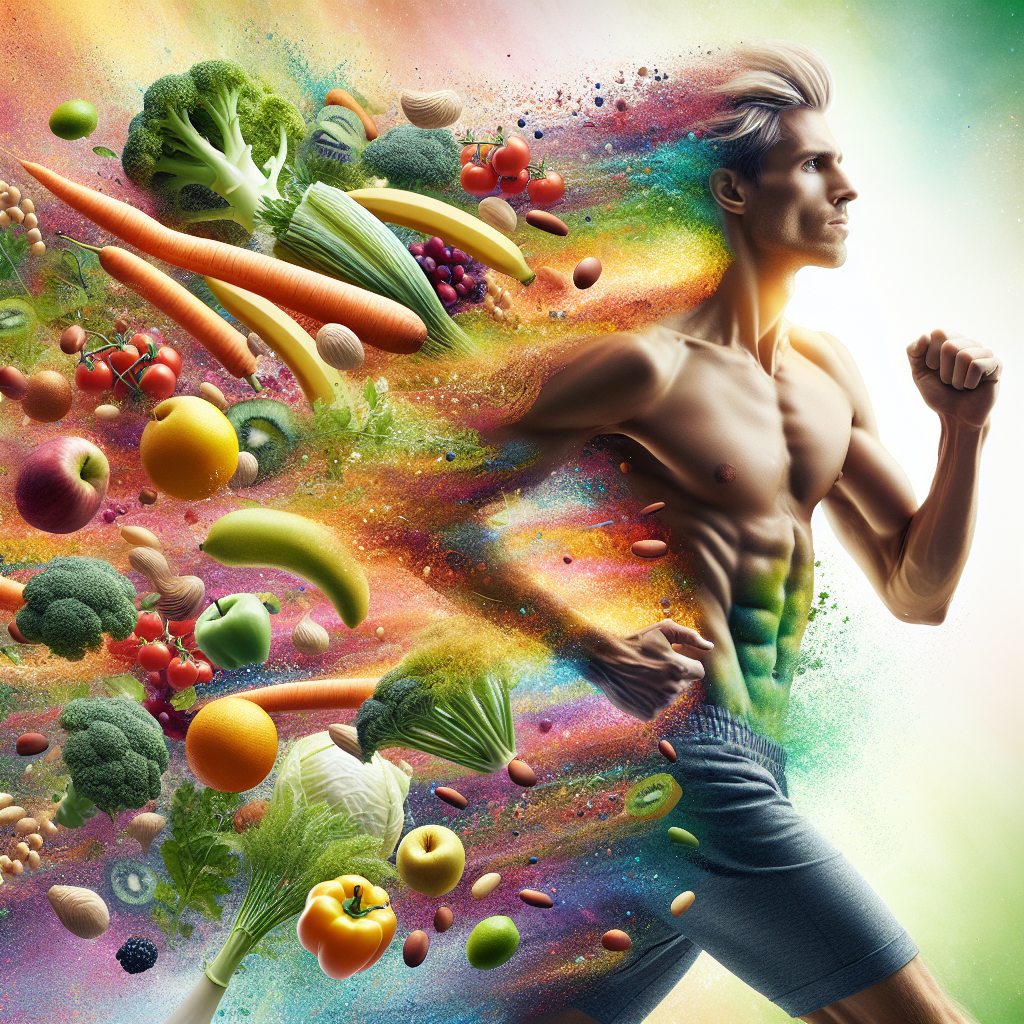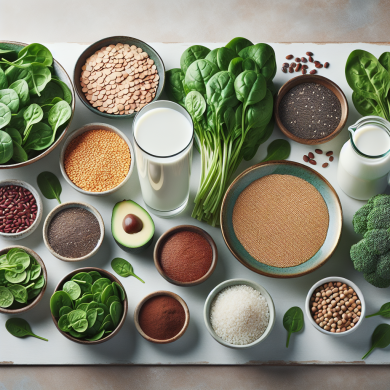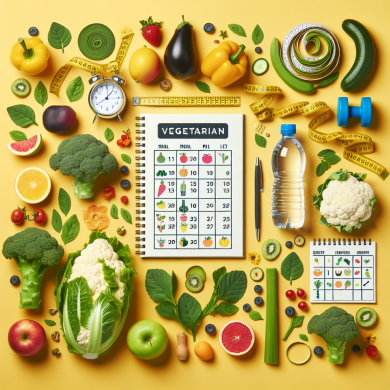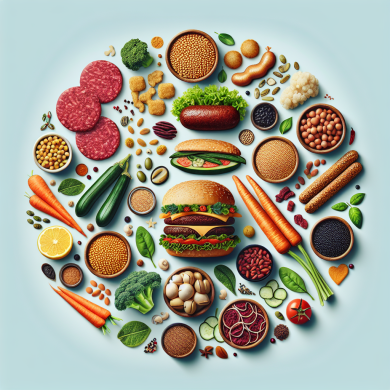Boost Athletic Performance with a Vegetarian Diet
Introduction
In recent years, the vegetarian diet has gained significant popularity among athletes seeking to enhance their performance. While traditionally, high-protein animal-based diets were considered the gold standard for athletes, a growing body of evidence suggests that a well-planned vegetarian diet can meet the nutritional needs of athletes and even offer unique advantages. This article explores how athletes can boost their performance through a vegetarian diet, focusing on key nutrients, meal planning, and the benefits of plant-based eating.
The Role of Nutrition in Athletic Performance
Nutrition plays a critical role in athletic performance, influencing energy levels, recovery, muscle growth, and overall health. Athletes require a balanced intake of macronutrients such as carbohydrates, proteins, and fats, along with essential vitamins and minerals. These nutrients support energy production, muscle repair, and immune function, all of which are vital for optimal performance.
Understanding the Vegetarian Diet
A vegetarian diet excludes meat, fish, and poultry but includes plant-based foods such as fruits, vegetables, grains, legumes, nuts, and seeds. Variations of the vegetarian diet include:
- Lacto-vegetarian: Includes dairy products but excludes eggs.
- Ovo-vegetarian: Includes eggs but excludes dairy products.
- Lacto-ovo vegetarian: Includes both dairy products and eggs.
- Vegan: Excludes all animal products, including dairy and eggs.
Each variation can provide adequate nutrition for athletes when well-planned.
Key Nutrients for Vegetarian Athletes
Protein
Protein is essential for muscle repair and growth. Contrary to popular belief, vegetarian diets can provide sufficient protein through sources like legumes, tofu, tempeh, quinoa, nuts, seeds, and dairy or eggs (if included). Combining different plant foods, such as rice and beans, can provide a complete amino acid profile.
Iron
Iron is crucial for oxygen transport in the blood. Vegetarian athletes may be at risk of iron deficiency because plant-based iron (non-heme iron) is less bioavailable than animal-based iron (heme iron). To enhance iron absorption, athletes should consume vitamin C-rich foods alongside iron-rich foods such as lentils, tofu, spinach, and fortified cereals.
Calcium and Vitamin D
Calcium is vital for bone health and muscle function, while vitamin D aids calcium absorption. Vegetarian sources of calcium include leafy greens, fortified plant milks, almonds, and tofu. Sunlight exposure and fortified foods can help meet vitamin D needs, but supplements may be necessary for some athletes.
Vitamin B12
Vitamin B12 is important for nerve function and red blood cell production. It is primarily found in animal products, so vegetarian athletes should consider fortified foods or supplements to meet their needs.
Omega-3 Fatty Acids
Omega-3 fatty acids support heart health and reduce inflammation. Vegetarian sources include flaxseeds, chia seeds, walnuts, and algae-based supplements.
Benefits of a Vegetarian Diet for Athletes
Enhanced Recovery
Plant-based diets are rich in antioxidants and anti-inflammatory compounds, which may aid in muscle recovery and reduce soreness. Foods like berries, leafy greens, and nuts are excellent sources of these beneficial compounds.
Improved Cardiovascular Health
A vegetarian diet is typically lower in saturated fat and cholesterol, promoting better cardiovascular health. This can lead to improved endurance and overall athletic performance.
Optimal Weight Management
Vegetarian diets are often lower in calories and high in fiber, which can help athletes maintain a healthy weight, optimize body composition, and enhance performance.
Meal Planning Tips for Vegetarian Athletes
Balance Macronutrients
Athletes should focus on balancing their macronutrient intake to meet energy demands. Carbohydrates should form the majority of the diet, providing fuel for workouts, while protein and healthy fats support muscle repair and overall health.
Incorporate a Variety of Foods
To obtain all essential nutrients, athletes should include a wide range of plant-based foods. This variety ensures a diverse intake of vitamins, minerals, and phytochemicals that support performance and recovery.
Plan Meals Around Training
Athletes should tailor their meals to coincide with training sessions. Pre-workout meals should be rich in carbohydrates for energy, while post-workout meals should focus on protein for muscle repair. Snacks like protein smoothies, nut butter on whole-grain bread, or hummus with vegetables can provide needed energy and nutrients.
Overcoming Challenges
Addressing Common Concerns
Some athletes may worry about meeting their protein needs or experiencing energy deficits on a vegetarian diet. These concerns can be addressed through careful meal planning and consulting with a sports nutritionist if needed.
Meal Prep and Convenience
Busy athletes may find meal prep challenging, but planning ahead and preparing meals in bulk can save time and ensure nutrient-rich options are readily available. Utilizing quick-cooking grains, frozen vegetables, and pre-cooked legumes can simplify meal preparation.
Conclusion
Adopting a vegetarian diet can be a powerful way for athletes to boost their performance. By focusing on nutrient-dense plant foods and ensuring adequate intake of key nutrients, athletes can achieve optimal energy levels, enhanced recovery, and improved overall health. With careful planning and an understanding of individual nutritional needs, vegetarian athletes can excel in their respective sports and enjoy the numerous benefits of a plant-based lifestyle.















Add comment